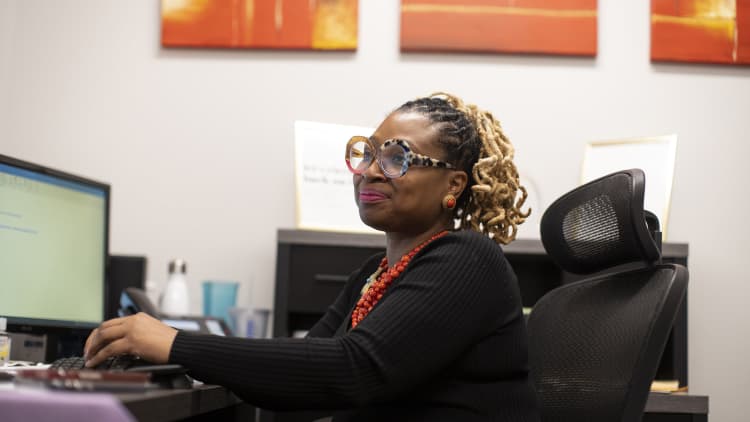During the past two years, companies nationwide have pledged to improve and embrace diversity, equity and inclusion in their workplaces. However, many organizations have missed the mark, leaving employees of color feeling unsupported and even considering reentering the job market.
Diversity in managerial and executive positions remains an issue for professionals of color. According to Zippia, 70.8% of managers in the U.S. are white, while 14.4% are Latinx, 6.2% are Asian, and 6% are Black. At the executive level, Investopedia reports that the Fortune 500 has only six Black, 40 Asian American, and 20 Latinx CEOs.
This concentration of power in C-suites can lead to unconscious bias, which is a large contributor to the lack of diversity and the negative workplace experience of people of color.
"In the same way we advise companies to use diverse hiring committees to reduce the impact bias has on hiring, they should consider what other important people management decisions are being made with the input of too few voices," says Ekow Sanni-Thomas, DEI strategist and founder of Inside Voices.
Coupled with diversity at the executive level, addressing the "frozen middle'' and creating actionable initiatives can help companies better ensure that their DE&I strategies resonate with their employees.
Defrosting the frozen middle
It can be hard for non-POC to understand the experiences and needs of their diverse counterparts. In the workplace, this can lead to trouble executing DE&I plans, resulting in what professionals are calling the "frozen middle."
According to Eric Ciechanowski, a resume expert and content strategist at Job Hero, a resume builder website, mid-level professionals are usually responsible for implementing DE&I plans from executives, but not for creating those plans. The frozen middle can occur when middle managers can't move up within their companies because they don't understand or misinterpret directions, resulting in less effective execution.
"Many companies see this as a problem with their middle managers, but it is often due to poor communication and exclusion from the executives in a company," Ciechanowski says on Job Hero's website.
To combat this lack of progress, executives should ensure that mid-level employees have the skills and tools necessary to execute their plans. Leadership must also do their part in diversifying talent and practicing good communication before, during and after the project's completion, eliminating gray areas.
The power of diversity
Not only does diversity improve overall workplace morale and company culture, but having diverse professionals in management and executive positions has been a key driver to many companies' success, including the Carlyle Group, a global private equity firm.
In 2018, Carlyle expanded their DEI Council globally, including their CEO, Kewsong Lee, and 17 other diverse senior leaders working to foster inclusivity at the firm. Carlyle's managing director and chief DEI officer Kara Helander had a goal of promoting and reskilling diverse talent in their company and, in 2020, launched the Career Strategies Initiative (CSI), with input from the DEI Council. This program allows talent to receive virtual leadership training, a manager and sponsor to help track career progress, and an action plan to ensure goals are met.
According to Carlyle, 39% of CSI participants were promoted compared to a 15% promotion rate firmwide. Additionally, Carlyle says that turnover rates for CSI participants are less than half of the turnover rates firmwide, showing the impact the program has had on the growth of diverse professionals.
"It allowed me to get some really candid perspectives on my performance and opportunities for development and trajectory," says Chioma Achebe, a program participant who was promoted from vice president to principal at the firm after participating in the program.
Anna Tye, Chioma's sponsor and managing director at Carlyle, noted that the program has not only helped herself and Achebe, but has helped the company.
"Being able to help support an incredibly talented, diverse leader and helping her navigate the firm has been incredibly rewarding," she says. "Because of this relationship, I'm able to loop her into some of the work that we're doing, which I think is going to be a great experience for her, but also allows our tech team to benefit greatly from her talent and insight."
Carlyle also reports that since Lee became CEO in 2020, 40% of their leadership committee are women, ethnic minorities, or LGBTQ+, and 85% of employees feel like the company values diversity, showing the positive impact representation can have if companies take the time to prioritize it.
Check Out:
For the first time, 30% of all S&P 500 board directors are women



